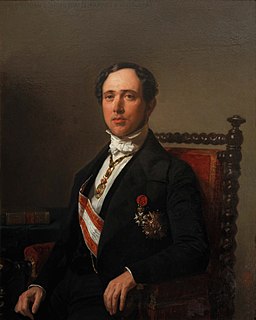A Quote by Mark Hopkins
Our prayer and God's mercy are like two buckets in a well; while the one ascends the other descends.
Related Quotes
Bibles read without prayer; sermons heard without prayer; marriages contracted without prayer; journeys undertaken without prayer; residences chosen without prayer; friendships formed without prayer; the daily act of prayer itself hurried over, or gone through without heart: these are the kind of downward steps by which many a Christian descends to a condition of spiritual palsy, or reaches the point where God allows them to have a tremendous fall.
There are two gods. The god our teachers teach us about, and the God who teaches us. The god about whom people usually talk, and the God who talks to us. The god we learn to fear, and the God who speaks to us of mercy. The god who is somewhere up on high, and the God who is here in our daily lives. The god who demands punishment, and the God who forgives us our trespasses. The god who threatens us with the torments of Hell, and the God who shows us the true path.
There are two gods. A god who casts us off because of our sins, and a God who calls to us with His love.
This is our Lord’s will, that our prayer and our trust be both alike large. For if we trust not as much as we pray, we do not full worship to our Lord in our prayer, and also we tarry and pain our self. The cause is, as I believe, that we know not truly that our Lord is Ground on whom our prayer springeth; and also that we know not that it is given us by the grace of His love. For if we knew this, it would make us to trust to have, of our Lord’s gift, all that we desire. For I am sure that no man asketh mercy and grace with true meaning, but if mercy and grace be first given to him.
Prayer assumes the sovereignty of God. If God is not sovereign, we have no assurance that He is able to answer our prayers. Our prayers would become nothing more than wishes. But while God's sovereignty, along with his wisdom and love, is the foundation of our trust in Him, prayer is the expression of that trust.
Catholicity seized on man... and the mystics, transcending all, taught him to ascend on high with the wings of contemplation the Ladder of Jacob composed of brilliant stones, by which God descends to Earth and man ascends to Heaven, till Earth and Heaven, and God and man, burning together in a conflagration of infinite charity, are transmuted into one.
Jesus’ example of fidelity to prayer challenges us to examine the time and effort we devote to our own prayer. While prayer is a gift of God, it is also an art learned through constant practice. Jesus teaches us to pray constantly, but also to bear witness before others of the beauty of prayer, self-surrender and complete openness to God.
God is always present, always available. At whatever moment in which one turns to him the prayer is received, is heard, is authenticated, for it is God who gives our prayer its value and its character, not our interior dispositions, not our fervor, not our lucidity. The prayer which is pronounced for God and accepted by him becomes, by that very fact, a true prayer.
Prayer is first of all listening to God. It's openness. God is always speaking; he's always doing something. Prayer is to enter into that activity... Convert your thoughts into prayer. As we are involved in unceasing thinking, so we are called to unceasing prayer. The difference is not that prayer is thinking about other things, but that prayer is thinking in dialogue,... a conversation with God.
Life is full of physical infirmities that some might see as discriminations - total paralysis or serious mental impairment being two that are relevant to marriage. If we believe in God and believe in His mercy and His justice, it won't do to say that these are discriminations because God wouldn't discriminate. We are in no condition to judge what discrimination is. We rest on our faith in God and our utmost assurance of His mercy and His love for all of His children.
Two places are ordained for man to dwell in after this life. While he is here, he may choose, by God's mercy, which he will; but once he is gone from here, he may not do so. For whichever he first goes to, whether he like it well or ill, there he must dwell forevermore. He shall never after change his dwelling, though he hates it ever so badly.




































